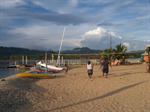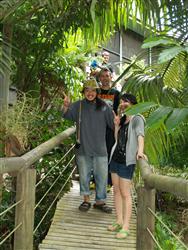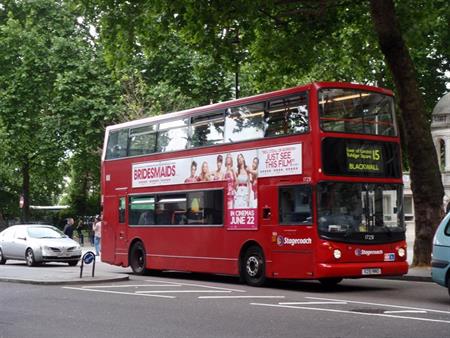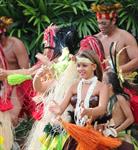
Work in the Tourism Industry
Graduates may start their own business, or find work in any one of many different jobs, for example:
- Tour operator
- Tour manager
- Tour leader
- Tour Booking Agent
- Tour Attraction, Theme Park, Facility etc staff
- Tourism Services Staff (accommodation, transport, food service, equipment hire, etc)
THE MODULES
Core Modules
These modules provide foundation knowledge for the Certificate in Tourism.
Elective Modules
 In addition to the core modules, students study any 2 of the following 8 modules.
In addition to the core modules, students study any 2 of the following 8 modules.
Content of Core Modules
Food & Beverage Management
This subject has 9 lessons as follows:
- Human Nutrition - This covers all the major food groups and their importance in a nutritional diet. Also including factors in nutrition from compatibility and range of ingredients through to healthy cooking and eating methods.
- Cooking - Includes various cooking methods for a variety of different foods, covering both palatability and digestibility through to the nutritional value in processing foods.
- Kitchen & Food Management - Learn to maximise efficiency and service through proper management of kitchen facilities, including the handling of food storage and preparation, hygiene and ethics.
- Planning A Menu - Covering menu planning for the needs of special groups in different situations, including children; adolescents; elderly people; expectant and nursing mothers; immigrants; vegetarians and other health related diets.
- Alcoholic Beverages - Learn how to provide adequate variety and product knowledge in order to manage the provisions of alcoholic beverages appropriately for different situations.
- Tea, Coffee and Non-Alcoholic Beverages - This lesson provides an understanding of non-alcoholic beverages available in the catering industry and how they should be made and served.
- Scope & Nature Of Catering Services - Learn to understand the differences in appropriate management and catering for a variety of situations from pubs to a-la-carte.
- Personnel Management -(waiting skills, staffing a restaurant, kitchen etc) This lesson covers the management of people in the food and restaurant industry, including training programs, job specifications, recruitment etc.
- Management Of Catering Services - By consolidating the skills developed throughout this course you are given a comprehensive understanding of marketing through to food purchasing in order to effectively manage in the food and beverage industry.

Tourism 1
There are ten lessons in this module as follows:
- Travel Industry Overview/Introduction : holiday travel, Business travel, Resources, Components of travel (Accommodation, Transport, Food, Luggage/what to take, Health, Money, etc)
- Destinations : Local, State, Interstate, International; health before departure.
- Money, Insurance & Legalities : Credit cards, travelers cheques, exchange rates, International driving, quarantine laws, Islamic law, political concerns, tariffs, duty free, departure taxes etc.
- Transport - Airline reservations : International Air Transport Assn, Aircraft types, Flight information, transfers, time zones, passports, visas, baggage, travelling with animals, making a reservation, etc.
- Transport - Car Rental : Types of hire cars, reading manuals, different road rules, making reservations, cost structures, etc
- Transport -Other, boat (ferries, cruising), bus, rail etc
- Accommodation : Camping, Caravans, Tents, B & B's & Guesthouses, Hotels, Youth Hostels, Resorts, etc
- Package Tours
- Travel Agency Systems : Ethics, Tourist organisations, Client records and accounts procedures, etc.
- Special Project -planning a trip
Bookkeeping I
There are 10 lessons as follows:
- Introduction – Nature and Function of Accounting for Service Firms
- The Balance Sheet
- Analysing and Designing Accounting Systems
- Cash Receipts and Cash Payments Journal
- The General Journal
- Profit and Loss Statements
- Depreciation of Non-current Assets
- Profit Determination and Balance Day Adjustments
- Cash Control: Bank Reconciliation and Petty Cash
- Cash Control: Budgeting
Event Management
There are nine lessons in this module as follows:
- Scope and Nature of Event Management
- Developing the Concept
- Physical an Human Resources
- Project Logistics
- Marketing an Event
- Financial Management
- Risk Management
- Staging the Event
- After the Event
 Scope of the Tourism Industry
Scope of the Tourism Industry
The tourism industry embraces a large variety of enterprises; some of which are entirely focused on supplying services to tourists; and others that supply goods and services partially to tourists, and partially to non tourists. These can include:
- Accommodation Services -for example hotels, camp grounds, guest houses, holiday cabins, rental houses, caravan hire, boat hire
- Transportation - including airlines, rail, buses, cruise ships, canal boats, car hire
- Food -restaurants, bars, take away, supermarkets, convenience stores; catering often to both the local population as well as tourists.
- Attractions/Sightseeing -tours, destinations (eg. theme parks, zoos, etc), entertainment (eg. cable TV, concerts, theatres. etc); cater in varying degrees to both locals and tourists
- Events Management - there can sometimes be a fine line between events and sightseeing. People do travel for events; but events also happen for people who do not travel. Consider family coming together for a wedding, or professional people coming together for an international conference.
- Insurance -eg. travel insurance
- Finance -eg. credit card facilities, international money exchange, travelers cheques
- Marketing -eg. tourism promotions, magazines, radio, TV, web sites, etc
Why Choose to study with ACS?
- Service –We put the student first; tutors and administration
can be contacted 5 days a week, 50 weeks of the year, by phone or email.
- We provide better Learning – we’ve been delivering distance
education for over 3 decades, and we understand how people learn by home study.
Our methods are unique, developed through trial and error always with our focus
squarely on helping you learn.
- Up to Date –We are continually revising and updating
courses. We listen to our students feedback and we always improve the course if
a change is identified that will help significantly improve your learning.
- More Choice –Graduates need a set of skills that will set
them apart and give them an advantage over competition in the world after
study. We have a wide variety of study choices, and give you lots of options to
choose different paths throughout a course. Doing this has meant an ACS
graduate is always different to other ACS graduates; and that difference has
made our graduates very successful.
- No Short Cuts –You can’t take short cuts in learning; and
that is why our courses are often longer than what you find elsewhere. Sure,
anyone can study a short course, quickly sit an exam (while the information is
fresh) and pass; but if you want to really understand something and retain it,
that takes time.
- More than just Learning Facts –We understand that success in
the workplace or business requires you to not only learn things, but also build
networks, understand the commercial world, be able to solve problems, communicate
with people, and have an attitude that will function in your chosen industry.
Our courses are designed to develop all of these things.
WHAT NEXT?
Register to Study - Go to “It’s Easy to Enrol” box at the top of the page and you can enrol now.
or
Get Advice – Email us at info@acsedu.co.uk OR
Use our FREE COUNSELLING SERVICE to contact a tutor
CLICK TO CONTACT US